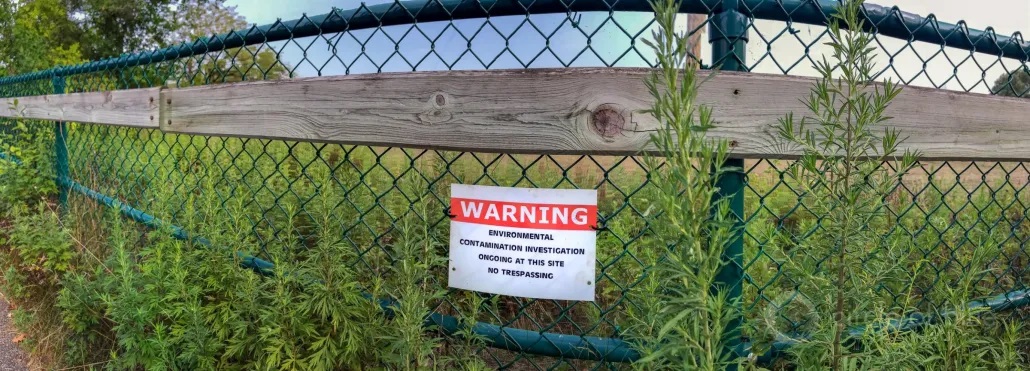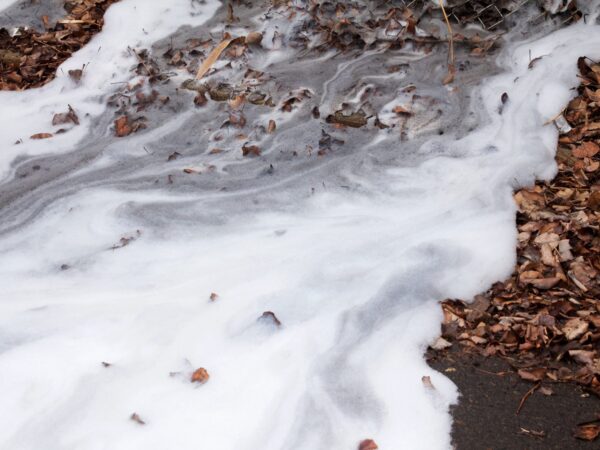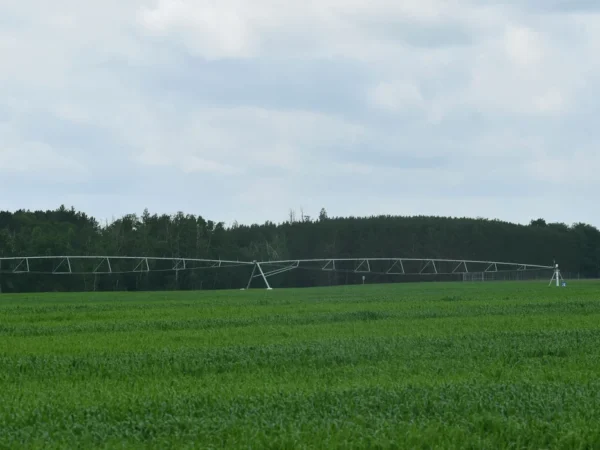
Fresh is a biweekly newsletter from Circle of Blue that unpacks the biggest international, state, and local policy news stories facing the Great Lakes region today. Sign up for Fresh: A Great Lakes Policy Briefing, straight to your inbox, every other Tuesday.
— Laura Gersony, Fresh Editor
This Week’s Watersheds
- A court ruling out of Wisconsin hamstrings the state’s cleanup of toxic “forever chemicals.”
- Quebec becomes the first jurisdiction in North America to ban fossil fuel extraction.
- A law that will determine the future of ephemeral streams in Ohio reaches the governor’s desk.
- Michigan officials relaunch a $40 million watershed conservation program.
- For the first time in years, Canada plans to fully fund a binational fisheries organization.
- A Pennsylvania judge blocks the governor’s attempt to put a price on carbon emissions.
A pivotal decision last week brought New York one step closer to achieving its clean energy goals.
“This is a big win for New York City…It’s a down payment on the renewable energy future we’ve been promised.”
— Costa Constantinides, former New York City Council member.
After an arduous regulatory skirmish, New York state regulators have approved two massive transmission lines to carry solar, wind, and hydroelectric energy into the city. The projects are expected to halve New York’s dependence on fossil fuels for power generation. One line, which will carry electricity from hydroelectric dams in Quebec, was fiercely opposed by some environmental and Indigenous groups, who see in the project Canada’s dark history of displacing Indigenous communities to build dams. The contract bars the construction of new dams, though some new dams already under construction could qualify to sell power to the line. When completed, the hydroelectric power line alone will meet over 20 percent of New York City’s energy needs.
Fresh from the Great Lakes News Collaborative
MDHHS won’t say filtered Benton Harbor water is safe to drink, but residents can decide what’s best for themselves — Michigan Radio
A Grand Rapids lake and the consequences of Michigan’s road salt addiction — Bridge Michigan
The Great Lakes News Collaborative includes Bridge Michigan; Circle of Blue; Great Lakes Now at Detroit Public Television; and Michigan Radio, Michigan’s NPR News Leader. We work together to produce news and information about the impact of climate change, pollution, and aging infrastructure on the Great Lakes and drinking water. This independent journalism is supported by the Charles Stewart Mott Foundation. Find all the work here.

Wisconsin Must Undergo Rulemaking To Enforce PFAS Cleanup, Judge Says
Wisconsin’s Department of Natural Resources can no longer require polluters to clean up spills of toxic “forever chemicals,” a judge ruled last week, as the chemicals are not defined as hazardous. The court ruled that the DNR must go through the 30 month-long rulemaking process and gain approval from lawmakers before enforcing such a rule. The state’s largest business lobby backed the case, arguing that the law puts undue cost on businesses, and that the lack of a complete list of hazardous substances can make it difficult to predict cleanup costs. While rampant in Wisconsin water systems, the toxic “forever chemicals”—a family of chemicals known as PFAS—are not yet regulated by the state in groundwater.
In context: PFAS in the House: Are Toxic “Forever Chemicals” a Steady Drip in This Reporter’s Home?
In the News
FOSSIL FUELS: Quebec adopted a bill to end all oil and gas exploration and extraction in the province, making it the first jurisdiction in North America to ban fossil fuel developments. The legislature also voted to pay fossil fuel companies $100 million in compensation, far short of the $500 million minimum that those companies were seeking. It was a victory for the province’s liberal coalition, which sees the law as an ambitious step away from planet-heating fossil fuels. Opposing the bill, conservative politicians and industry leaders argued that Quebec’s oil supply could ease Europe’s energy dependence on Russia, an urgent priority for the continent in light of Russia’s ongoing invasion of Ukraine.
EPHEMERAL STREAMS: A bill that would ease the regulation of ephemeral streams in Ohio sits on the desk of Gov. Mike DeWine. Ephemeral streams, which are bodies of water that flow only after heavy rain or snow, are currently regulated by Ohio’s Environmental Protection Agency. The proposed bill would remove the streams’ status as protected waterways, eliminating red tape for companies seeking to develop in those areas. Opponents of the bill argue that the streams play important ecological functions, such as filtering runoff into Lake Erie, and that allowing development in the waterways could increase property loss due to flooding.
CARBON PRICING: A Pennsylvania judge has blocked a state regulation that would charge power plants for their carbon emissions. Under the proposed plan, large fossil fuel-fired power plants would need to buy credits for every ton of carbon they emit—a mechanism designed to incentivize renewable energy. The regulation, a selling point of Gov. Tom Wolf’s plan to reduce carbon emissions, would be the first major carbon pricing plan in a major fossil fuel state.
Looking Ahead
CONSERVATION: Federal and state agricultural officials are relaunching a conservation program in several of Michigan’s watersheds. The effort will direct $40 million in federal funds towards land and water resources in the Lake Macatawa and Saginaw Bay watersheds as well as in the western basin of Lake Erie. The program will subsidize farmers’ use of conservation techniques including wetland restoration, riparian buffers, and sediment control structures, with the goal of reducing nutrient runoff.
BINATIONAL COOPERATION: For the first time in years, the Canadian government plans to fully fund the Great Lakes Fishery Commission, a treaty organization established in 1954 by the U.S. and Canada. The Commission’s purpose is to support science that guides fishery management decisions in the region and to help coordinate policies among American states, Ontario, and the tribes. Canada’s proposed federal budget, which awaits approval by Parliament, puts $45 million toward the organization over five years.
Other News
- The U.S.’s newly proposed budget for fiscal year 2023 includes funding for Great Lakes protection and PFAS cleanup in northern Michigan.
- The Biden Administration has released guidelines for states and tribes to request funding to clean up abandoned oil and gas wells.
Catch more news at Great Lakes Now:
Featured image: Toxic PFAS chemicals have been detected at dozens of groundwater sites across Michigan. Photo © J. Carl Ganter/Circle of Blue




